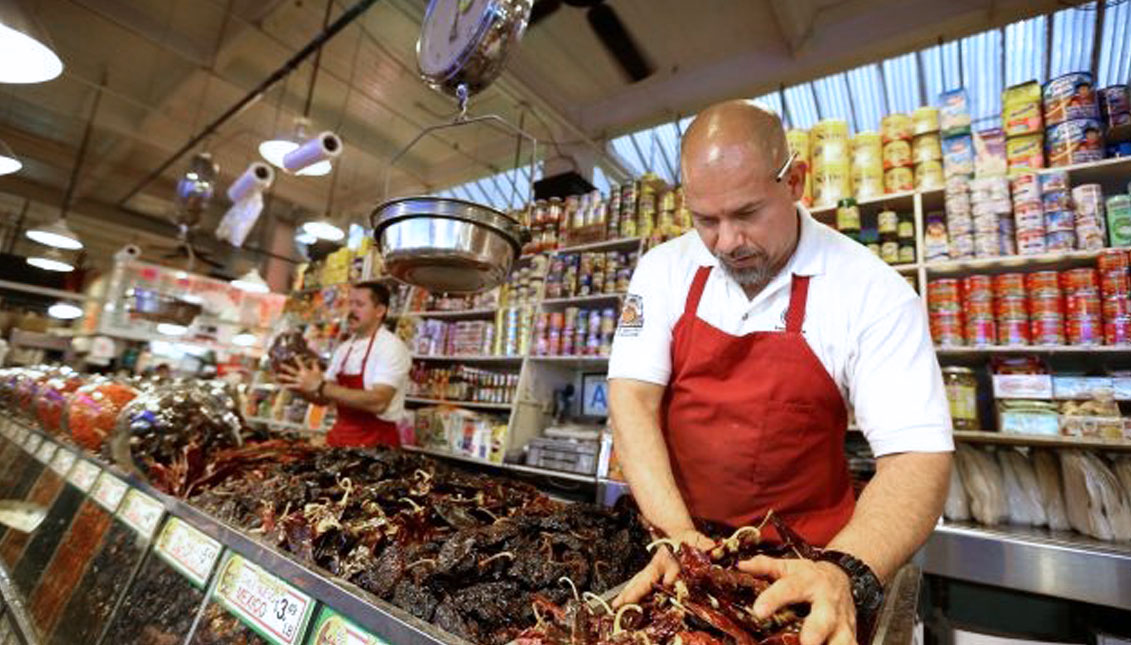
Undocumented immigrants at double risk during the Coronavirus pandemic
Despite being one of the highest tax-paying communities in the country, undocumented immigrants are once again forgotten by the federal government.
In times of crisis, and under a government like Donald Trump's, it is important to focus on what they do and not on what they say.
After weeks of playing down the most important public health crisis in recent years, the Trump Administration took its time to take action, design an economic strategy and respond to relieve the anguish of the citizenry.
One of the few areas in which Democrats and Republicans could agree was the passage of an economic stimulus package to help the country weather a pandemic that is forcing the closure of businesses and the confinement of people to their homes.
As Politico explained, the government approved "the largest economic stimulus in the history of the United States," maintaining favoritism for big business and disregarding the urgent needs of ordinary citizens.
"The measure includes the extension of worker protections that Democrats demanded along with the $500 billion rescue fund that Republicans pushed to help beleaguered U.S. industries," the media reported, adding that many citizens will receive $1,200 checks.
While the unemployed will receive an extra $600 per week, large industries will receive $500 billion in loans as well as a tax credit to keep people employed; hospitals will receive $100 billion, airlines $58 billion, and state and local governments will get $150 billion, especially to deal with rising unemployment claims.
However, when it comes to immigrants, both the Republican Party and the government in Washington said "no.”
“Literally, what we’re told by, from the Republicans, what I’ve been told in the negotiations with Mitch McConnell, and Donald Trump, and, like, all of these folks, is that they said ‘anything for immigrants is a non-starter,'” said Bronx Representative Alexandria Ocasio-Cortez in an interview with professional soccer player Megan Rapinoe.
“Undocumented immigrants pay taxes. Undocumented people pay, like, to the tune of $14 billion in taxes. And that means that undocumented people who are making our food, cooking in restaurants, stocking our stores, they pay more in taxes than Facebook does than Amazon does, than a lot of big Banks and GM does,” she added.
While politicians are eating their heads off between Trump's erratic press conferences and how to deal with a contagion rate that is only escalating, the streets are showing who are the ones keeping the country going.
These are, paradoxically, the "essential" workers, immigrants and people with precarious wages often taken for granted.
“This crisis is revealing the simple, illuminating truth that was there all along: there's no food on the store shelves we're now so worried about seeing empty without the people who grow it, stock it, and cash you out," says Jordan Pearson in his column for VICE. "There is no public transportation without bus drivers. Without sanitation workers, garbage will pile up in the streets. The world simply doesn't work without labor.”
"The idea of an "essential" worker has a pernicious side, no doubt, as companies quibble over what the term means and continue to exploit people while providing only the minimum protections,” he adds. "There is a sense that a pandemic under capitalism creates two types of people: those who can afford to self-isolate and those who must work while exposing themselves to a virus.”
Like it or not, the vast majority of these essential employees are undocumented immigrants.
In the case of the farmers, it is difficult to know how the government's stimulus package will help the thousands of employees and their families who continue to work every day to feed the country.
RELATED CONTENT
"Undocumented farmworkers pay taxes, but they are left out of the stimulus check the rest of us are eligible to receive," explains the United Farm Workers. "Even their US citizen children are left out. They are told they are essential workers, but they are not receiving essential benefits. They are putting themselves at risk on a daily basis by going out to the fields harvesting our food. Many are unable to practice social distancing as it is not possible with their work.”

Before implementing a social distancing plan, before assuming the social –rather than economic– risk involved in the Coronavirus pandemic, the Trump government took the first steps on its scale of priorities: closing the borders with Mexico and Canada.
The Immigration and Customs Enforcement Agency simultaneously redoubled its efforts in raids and arrests, especially in cities that had implemented social distancing, and detention centers were unwavering in their care protocols.
A fortnight after the crisis began to take shape in the country other agencies such as the Border Patrol have taken advantage of the pandemic to "implement the kind of rapid-fire deportation system that President Donald Trump has long praised," the Texas Tribune explained.
"Under the new rules, U.S. agents are processing migrants from Mexico, Guatemala, El Salvador, and Honduras “in the field” before they are able to set foot inside a U.S. Border Patrol station. The migrants are then whisked back to the border and sent into Mexico,” the media added.
The government's argument is to "minimize the exposure of the immigrant (to the virus), the agent and our country," one agent told the media.
But this type of persecution does not stop at the border.
Undocumented workers and undocumented youths arrived in the country when children –better known as Dreamers– feel equally vulnerable.
Even though the protections of the Deferred Action Program (DACA) remain in place, the Supreme Court's response to the Trump administration's attempts to end the program is still awaited.
If the Court's conservative majority sides with the government, more than 700,000 young people, professionals, and workers could be at risk of deportation, including 27,000 health care workers who are currently in hospitals and health centers protecting and saving lives.











LEAVE A COMMENT: